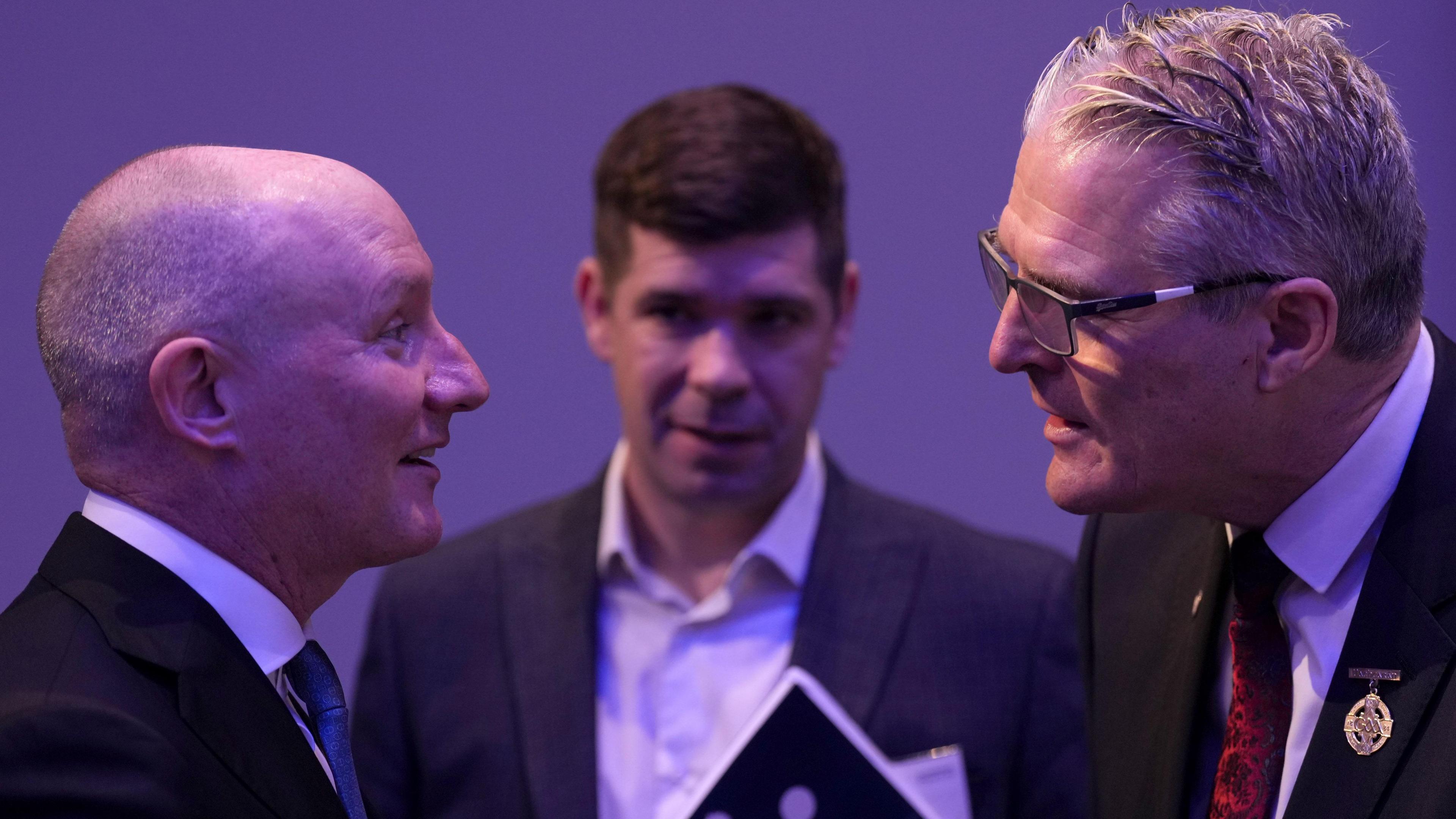Gaelic games on rise for those with no Irish ties
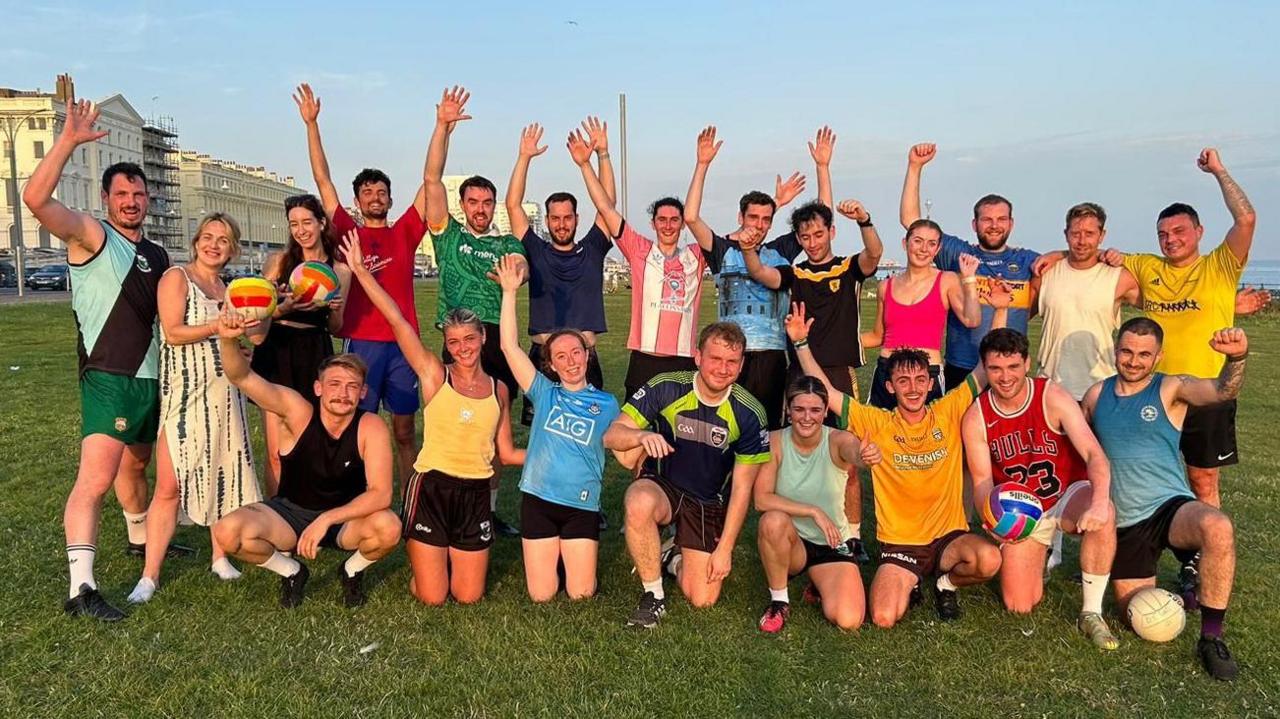
Brighton & Crawley Gaels say they are Sussex's only Gaelic football club
- Published
Gaelic football, one of the national games of Ireland, is growing in popularity with young people in Great Britain - including those with no connection to the sport or Irish roots.
Youth participation in Gaelic games is up by 28% in four years with youth membership now over 4,500, according to the Gaelic Athletic Association (GAA).
Coach of Brighton & Crawley Gaels' men's team Kevin O'Connell told BBC South East that people from "all over the world" play with them in Sussex.
"Learning a new sport is exciting," said club player Keegan Dean. "The full experience has been really amazing."
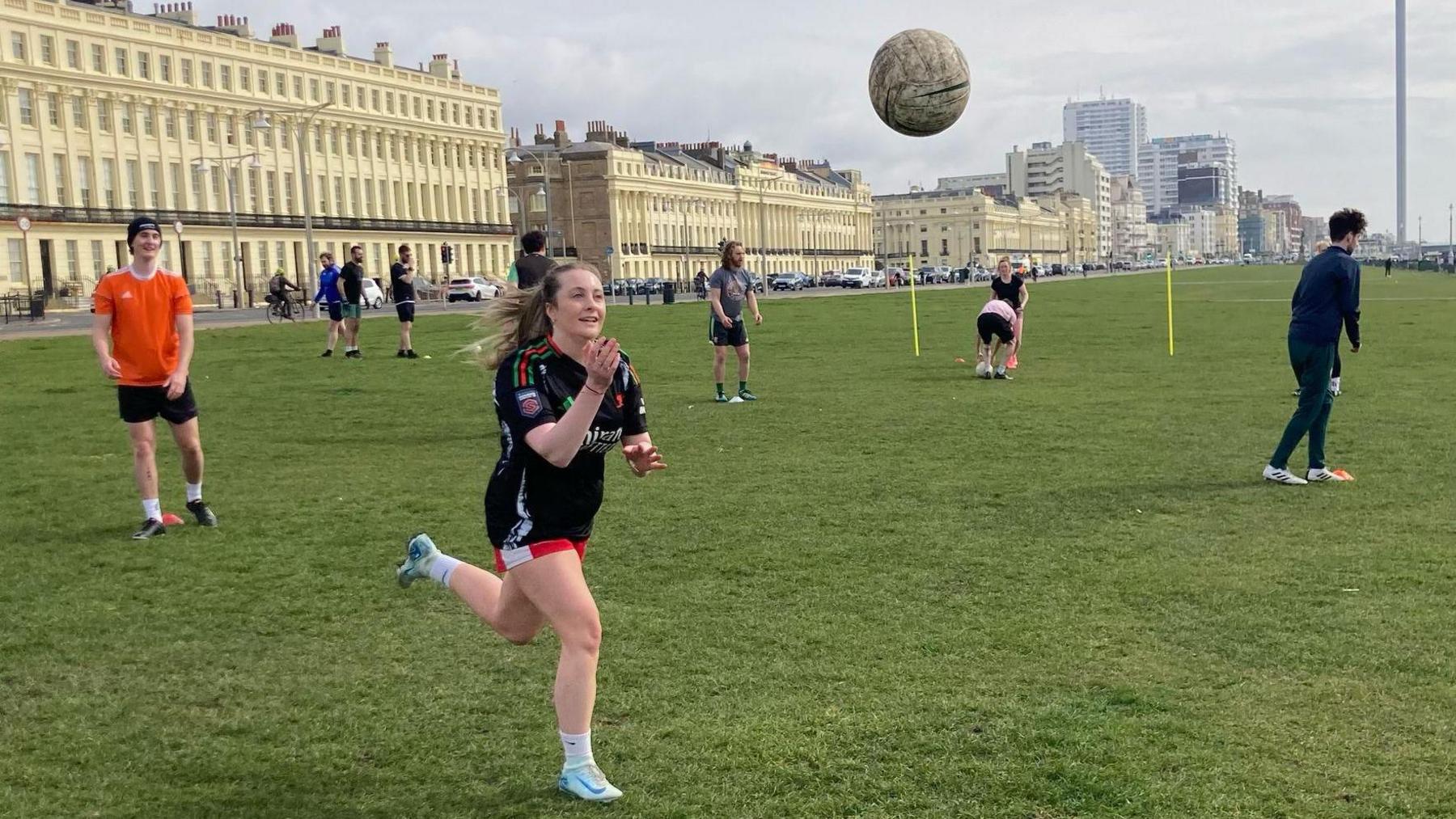
Brighton & Crawley Gaels says their mixed-gender training sessions create a "positive" environment
Michael Walker, secretary at Britain GAA, said "75% to 80% of [county] players" in Great Britain were "homegrown", with Gaelic football being their first sport.
The game has been popular in Ireland since the late 19th Century.
As a contact sport, teams can kick or punch the ball into the other team's goal - earning three points - or between two posts over the crossbar for one point.
Players can use both hands and feet but have to bounce the ball every four steps, or drop the ball and kick it back into their hands.
Mr O'Connell said Gaelic football was a cheap game to get involved with.
"All you need is a pair of boots and gloves," he said.
"There's no surprise expenses and there's a great community aspect to it."
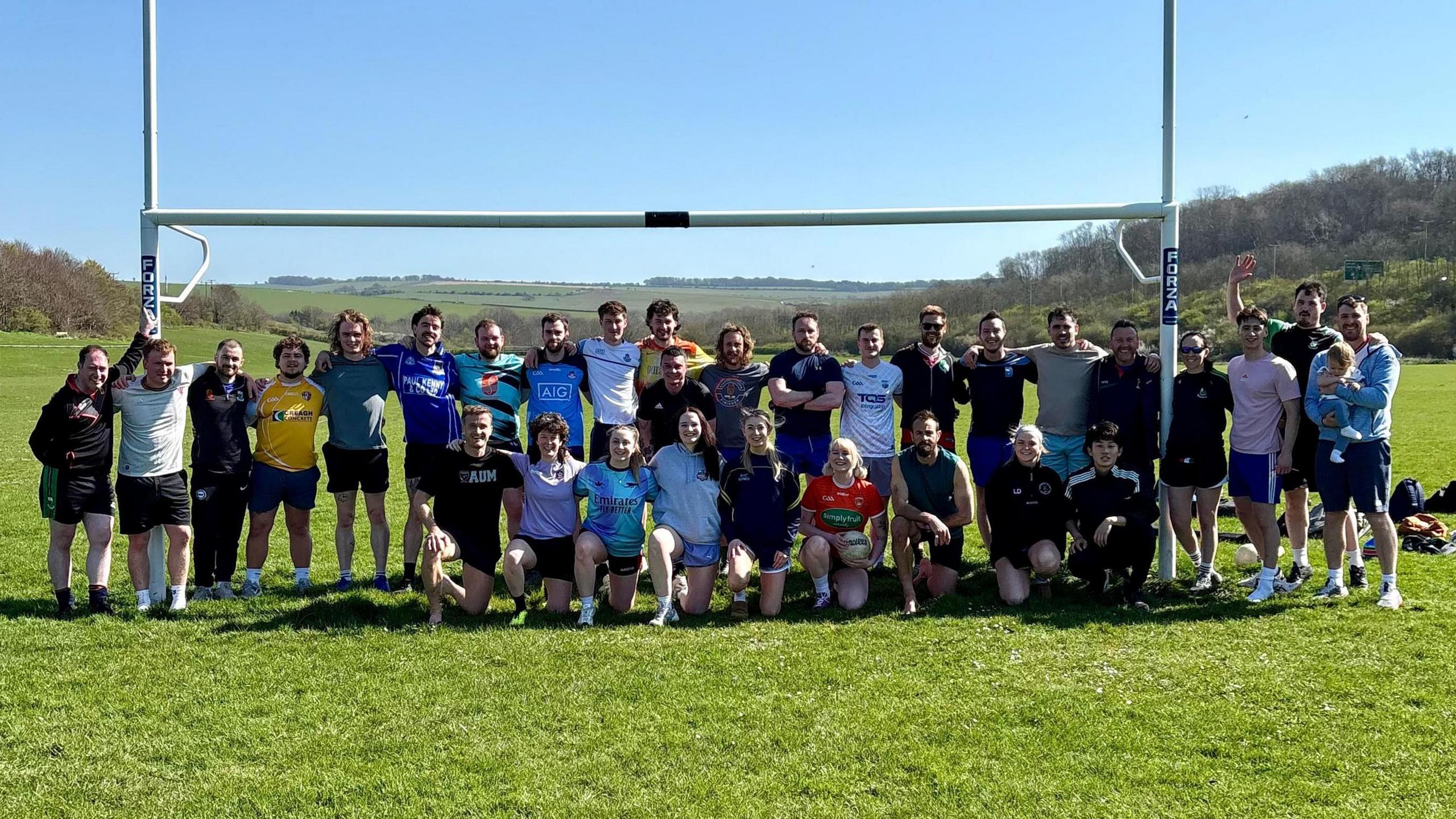
Brighton & Crawley Gaels train on Hove Lawns and at Waterhall in Brighton, where Gaelic football goal posts were installed in 2023
Verona Ní Drisceoil, a player with Brighton & Crawley Gaels' women's team, said there was no team to play for when she moved to Sussex from Cork in Ireland over a decade ago.
The club competes across men's and women's leagues, as well as mixed tournaments.
"The women and men train together and I think that's really positive," Ms Ní Drisceoil said.
"I think there's more gender equity here which we might not see at home as much."
Mr Dean, originally from Hull, moved to study at Brighton & Sussex Medical School before learning about Gaelic football.
"I was playing football at the time, so I took quite a bit of poking to come down and play, but I was convinced and I've loved it ever since," he said.
'For the love of the game'
Even at the highest level in Ireland, Gaelic football remains an amateur sport.
"No one's paid here. Everyone does it simply for the love of the game," Mr O'Connell said.
In 2024, there were 87 registered GAA clubs in Great Britain, external, with Britain GAA overseeing provincial club and county competitions.
Mr Walker, Britain GAA's secretary, said social media and being broadcast on the BBC helped to raise the sport's profile.
"Gaelic football is a mixture of rugby, soccer and basketball," he said.
Other Gaelic games include hurling, camogie, handball, and rounders.
Follow BBC Sussex on Facebook, external, on X, external, and on Instagram, external. Send your story ideas to southeasttoday@bbc.co.uk , external or WhatsApp us on 08081 002250.
- Attribution
- Published4 May
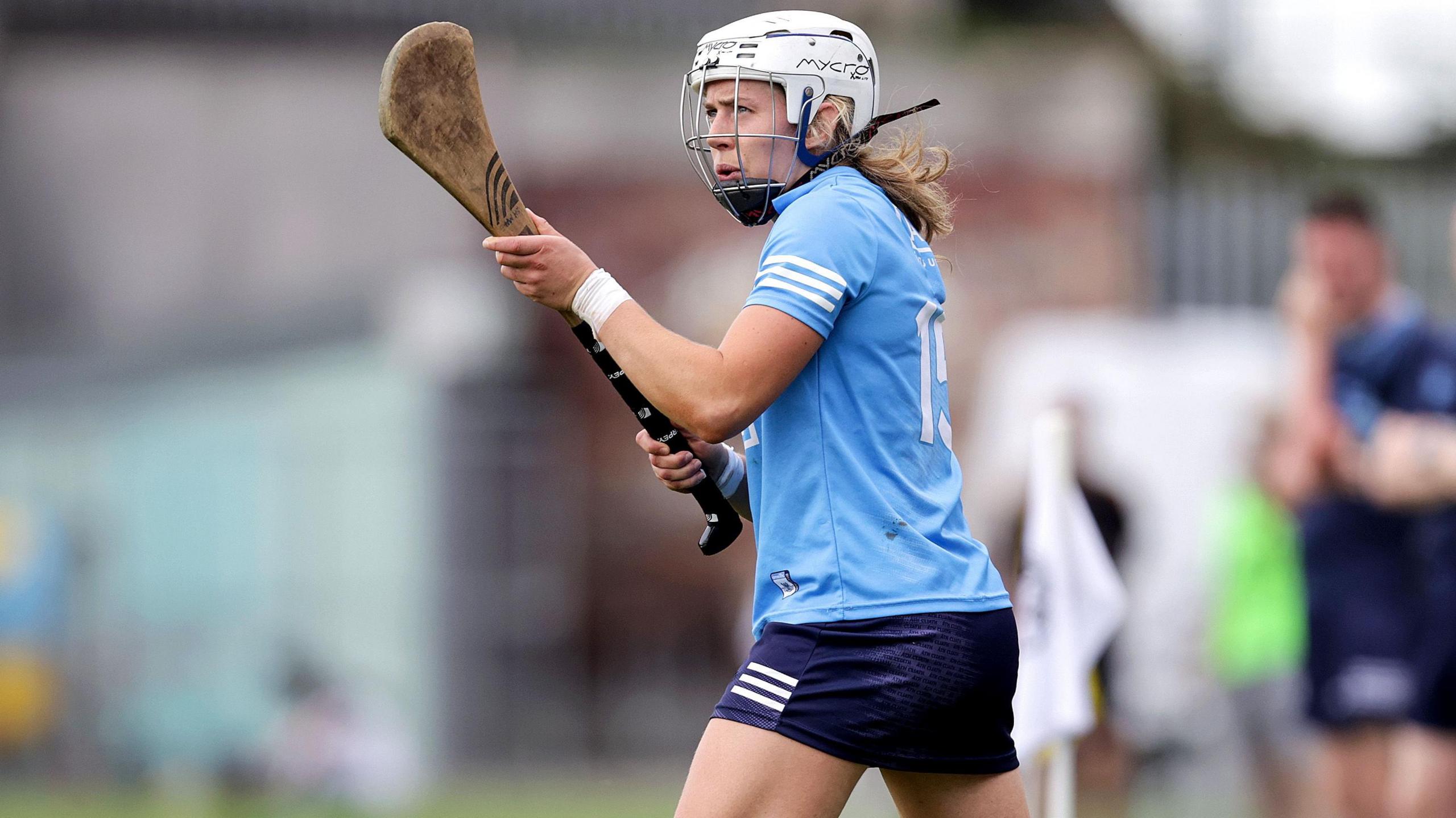
- Published3 April
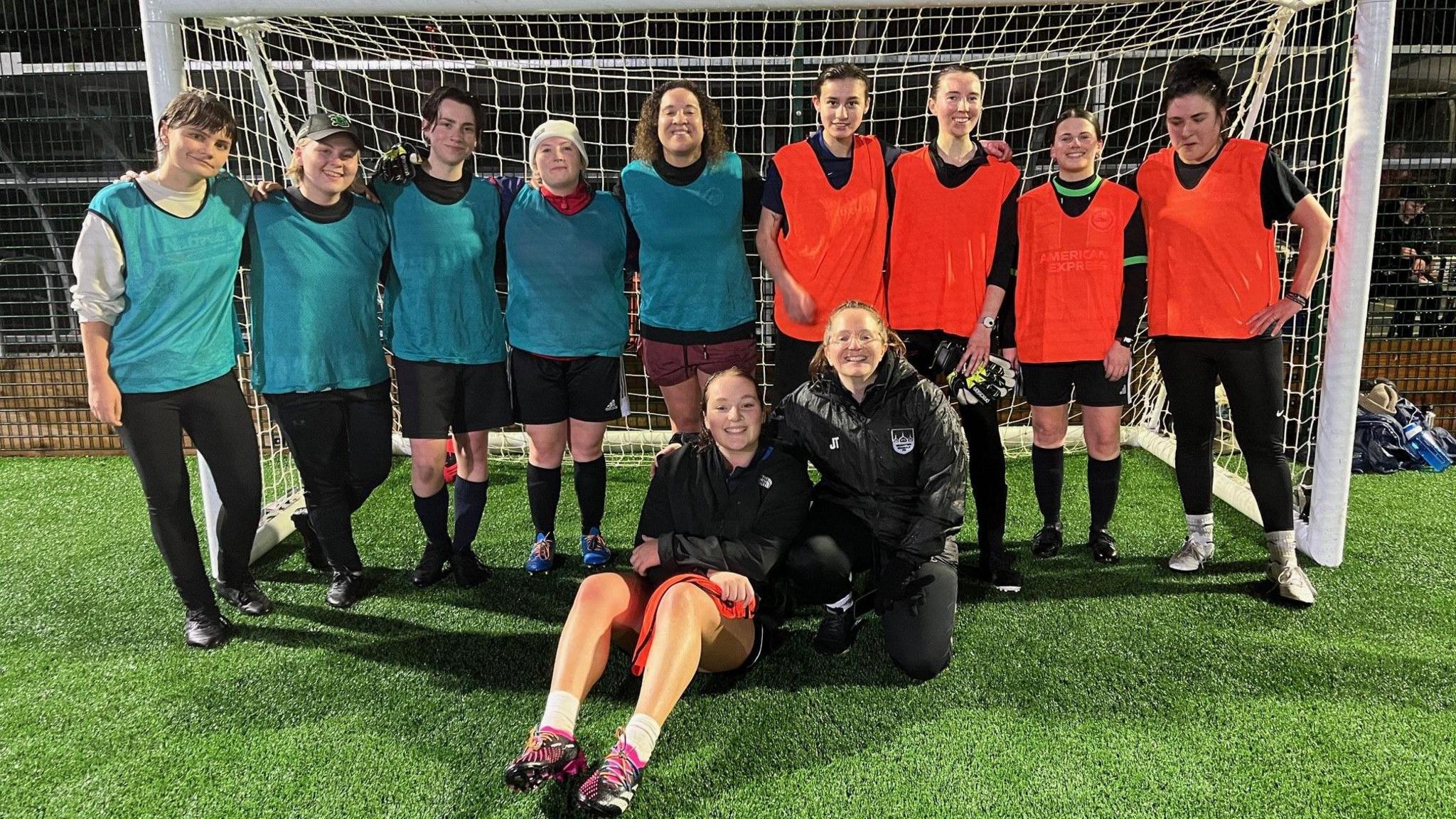
- Attribution
- Published30 November 2024
